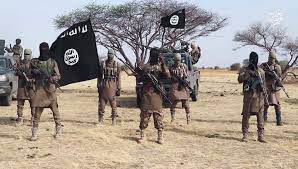By Martin Cole-
Seven people have been killed in an attack on a convoy transporting workers to a Shell oil and gas project in Nigeria’s southeast, Nigerian police have revealed.
Responsibility for Monday’s attack has not been claimed , but is believed to have been carried out by insurgents.
The news comes after a spate of kidnapping of school children in the North this year, which has sparked a wave of fear in the country. The country is currently battling a 12-year-long armed rebellion in the northeast, kidnappings for ransom and banditry in the northwest, herder-farmer violence in northern and central states, and separatist agitations in the southeast.
Imo state police spokesman Michael Abatan told AFP news agency on Wednesday that gunmen opened fire on a convoy of buses heading to a Shell gas plant in the area.
“We lost one policeman and six oil workers in the attack by the gunmen,” he said.
He said an investigation was under way “to arrest the gunmen and determine the motive for the attack”.
“We have since shut down the project site while the incident has been reported to the police for investigation,” the company said in a statement.
Attacks on oil and gas facilities by armed groups seeking a larger share of Nigeria’s oil wealth for the people of the Niger delta used to be common until an amnesty deal in the 2000s helped to restore peace..
Nigeria is one of the world’s richest in oil, but most of its inhabitants have for years not benefiting from it.
The attack comes on the same day President Muhammadu Buhari signed an new energy bill into law. The law also seeks to address the demands of local communities in crude-producing areas, though some community leaders say it has not gone far enough to provide them with a share of revenue from oil extracted from their land.
Nigeria is currently battling several security challenges, including a 12-year-long armed rebellion in the northeast, kidnappings for ransom and banditry in the northwest, herder-farmer violence in northern and central states, and separatist agitations in the southeast.
Last week, Royal Dutch Shell agreed to pay around €95m (£80.4m/$111.6m) to communities in southern Nigeria over crude oil spills in 1970, lawyers involved in the case have said.
The decision involving Opec-member Nigeria’s oil-producing south where communities have long fought legal battles over oil spills and environmental damage.
“The order for the payment of [$111m] to the claimants is for full and final satisfaction of the judgement,” a local spokesman for Shell Petroleum Development Company of Nigeria said on Wednesday.
Lucius Nwosa, a lawyer representing the Ejama-Ebubu community in Rivers state, confirmed the decision.
“They ran out of tricks and decided to come to terms,” the lawyer said. “The decision is a vindication of the resoluteness of the community for justice.”
The company said it maintained the spills were caused by third parties during Nigeria’s 1967-70 civil war when much damage was done to oil pipelines and infrastructure.
“It is a confirmation of the issues we have raised about Shell’s environmental devastation of Ogoni and the need for a proper remediation of the land,” the MOSOP organisation for the local Ogoni people said in response




